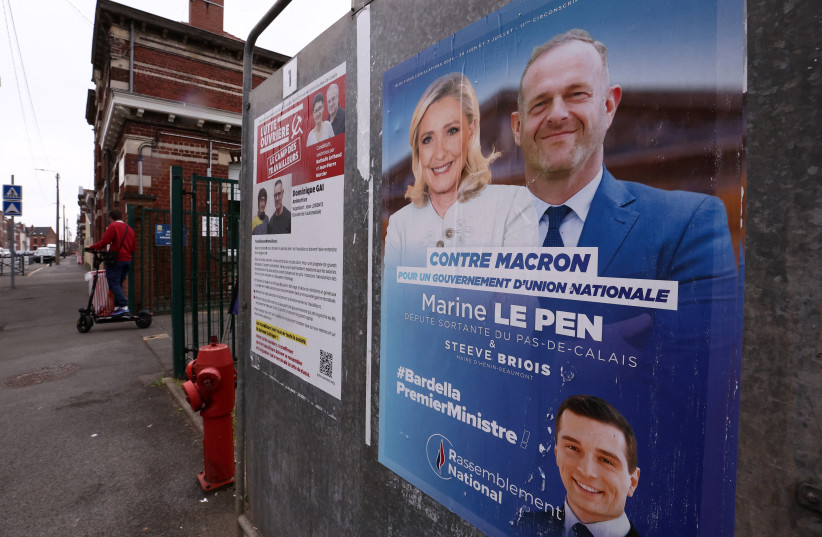Rima Hassan, a French-Palestinian lawyer and a new European Parliament Member for the far-left party La France Insoumise (LFI), stood right next to the head of this extreme left wing party on Sunday night, after the party came in second in the France parliamentary elections.
Hassan was recently at the center of significant controversy due to her comments regarding the Hamas attacks on Israel on October 7, 2023.
Hassan referred to the attacks as "legitimate," a statement that drew severe backlash from various quarters, including legal authorities and political figures in France.
Who is Rima Hassan?
Hassan was a 31-year-old lawyer with a background in international law from the Sorbonne University.
She was born in the Neirab camp in Syria, a settlement established for Palestinian refugees. Hassan moved to France at the age of nine and became a naturalized French citizen in 2010.

Her political career was marked by her outspoken advocacy for Palestinian rights, often aligning her with controversial stances that sparked both support and criticism.
As a candidate for LFI, Hassan held a significant position, being ranked seventh on the party's list for the European Parliament elections.
This ranking indicated a strong likelihood of securing a seat if the party garnered sufficient votes.
Legal and public backlash
Hassan's remarks on the October 7 attacks, where she described them as "legitimate," led to legal repercussions.
French authorities summoned her for questioning, considering the comments as potentially advocating terrorism.
Her lawyer, Vincent Brengarth, defended her, stating, “She has never incited any terrorist act whatsoever. And neither has she been an apologist for acts of terrorism.”
In addition to legal challenges, Hassan faced public backlash. Events featuring her, such as a Forbes France gala, were canceled due to the controversy surrounding her statements.
Political figures from across the spectrum criticized her, with accusations that her views promoted antisemitism and undermined the legitimacy of the Israeli state.
Election week recap
In the parliamentary elections held this week in France, the political landscape witnessed significant shifts. La France Insoumise (LFI) managed to secure a notable portion of the vote, reflecting their influence despite the controversies surrounding their candidates.
However, the far-right National Rally party made substantial gains, highlighting a shift towards more extreme political positions within the French electorate.
The controversy surrounding Hassan undoubtedly affected LFI's campaign, as the party had to navigate the delicate balance of supporting Palestinian rights while addressing accusations of promoting antisemitism.
The decision to cancel a conference on Palestine, co-organized by Jean-Luc Mélenchon and Hassan, further highlighted the challenges faced by the party in maintaining its stance while ensuring public safety and political viability.
Conclusion
Rima Hassan's comments on the October 7 massacre placed her and La France Insoumise in a precarious position.
As the party grappled with the fallout, the broader implications of such statements continued to resonate within French and European political landscapes.
The parliamentary elections this week reflected a shift in political dynamics, with far-right parties gaining ground, possibly influenced by controversies like those surrounding Hassan.
